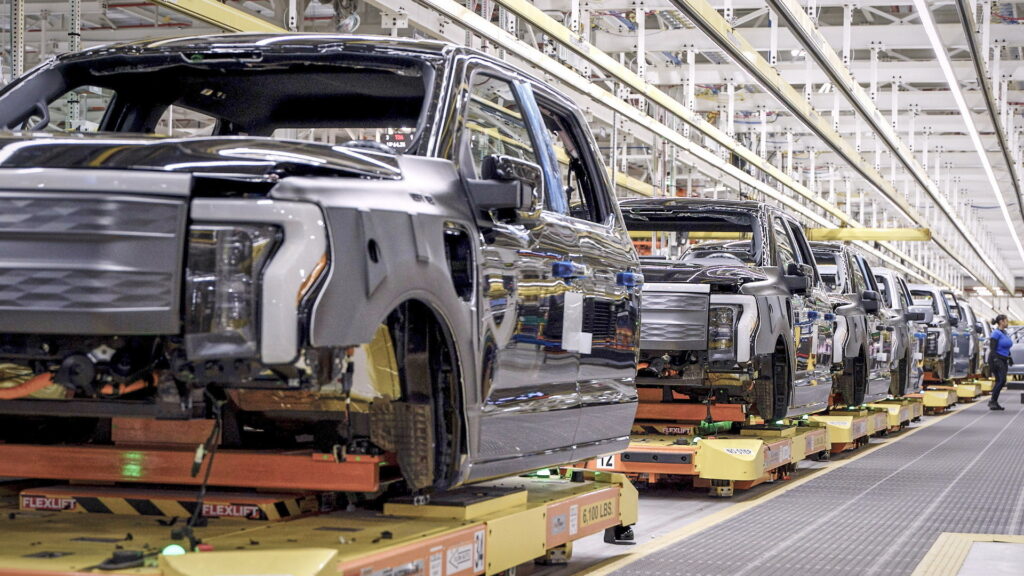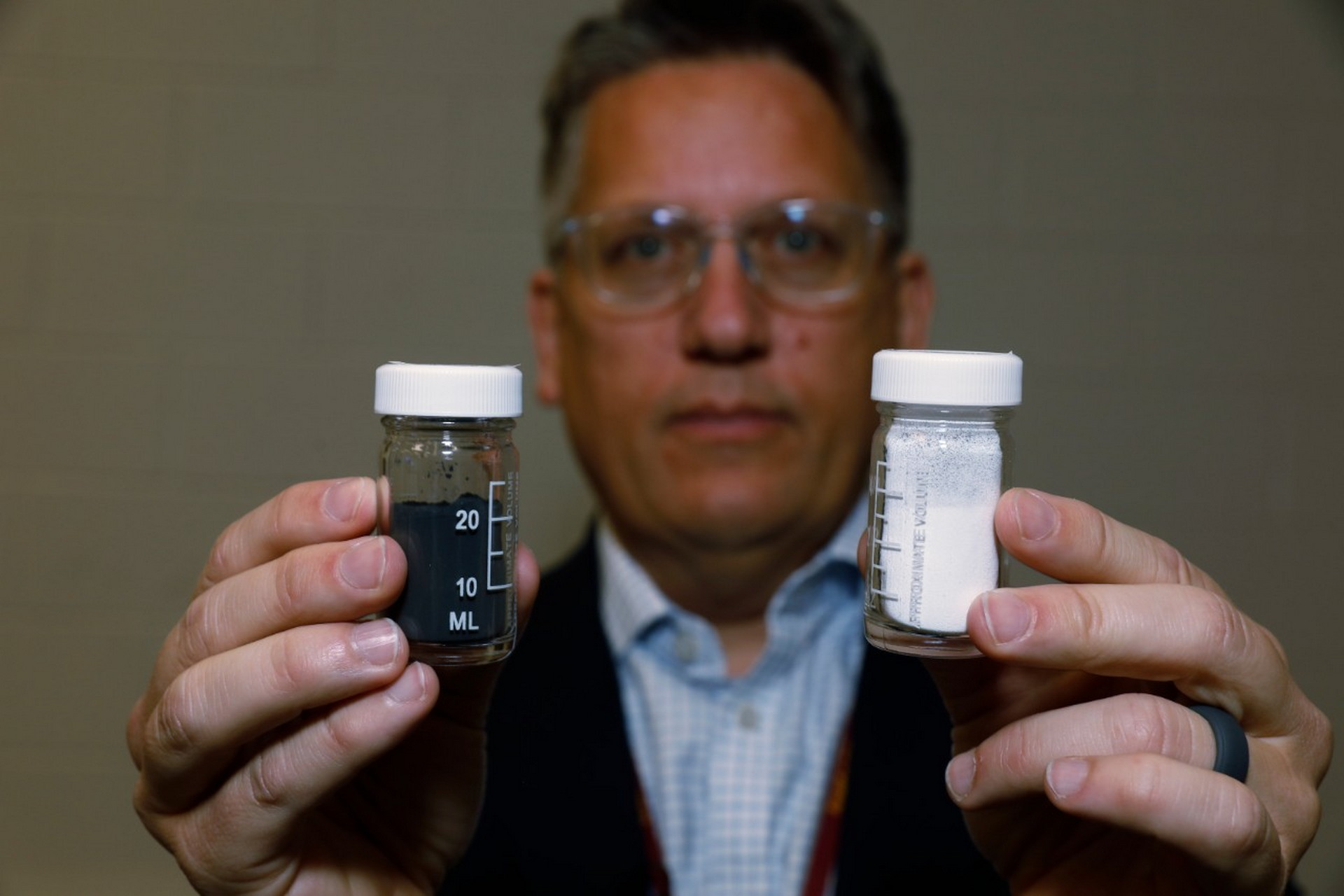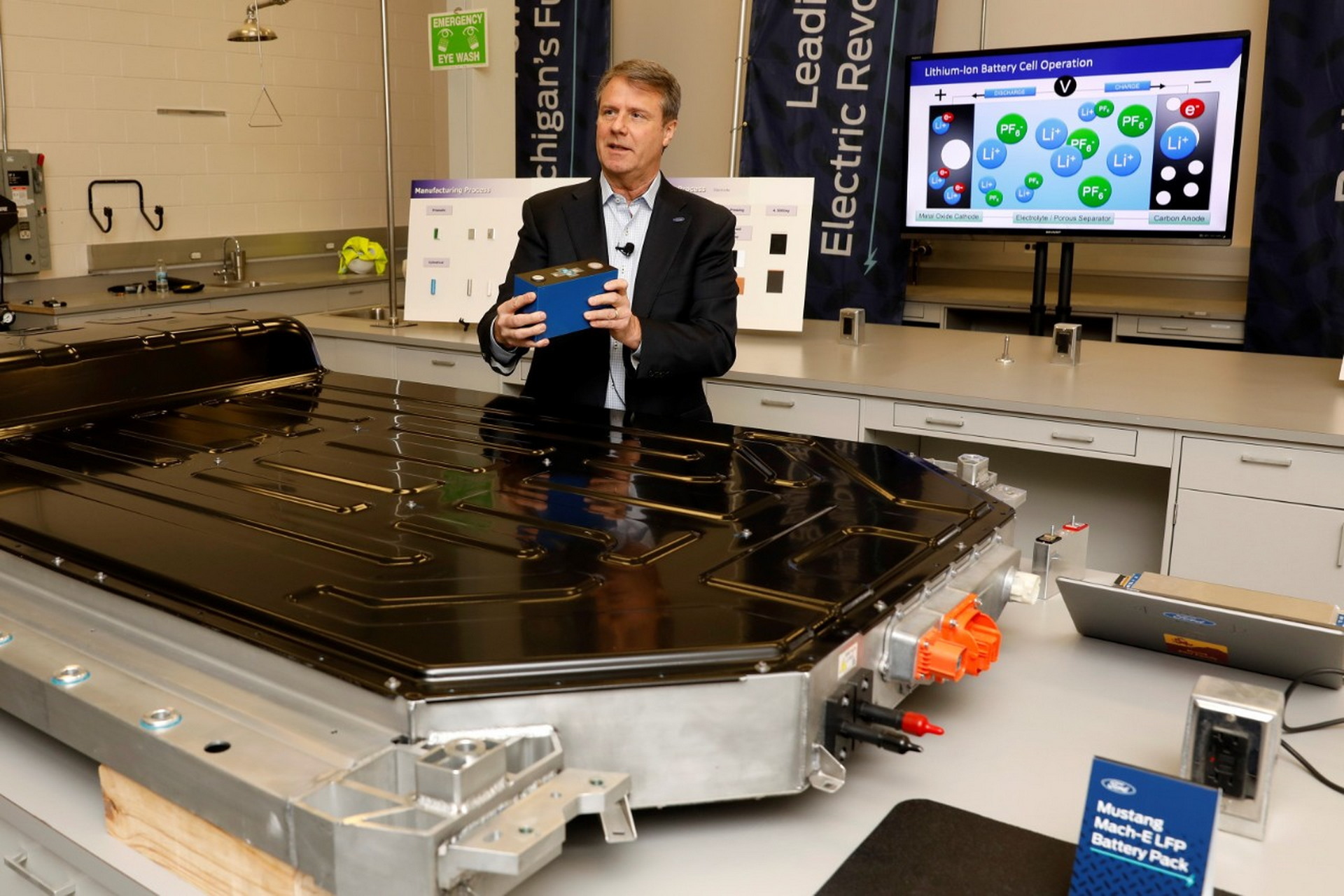Ford just announced a deal with the government of Michigan to build an EV battery plant worth $3.5 billion in the city of Marshall. The deal will bring with it an estimated 2,500 jobs while also leveraging technology from Chinese battery maker CATL. Once complete it’ll help Ford qualify for the Inflation Reduction Acts requirements for a full tax credit on EVs.
The completed facility will go by the name BlueOval Battery Park Michigan. “We are committed to leading the electric vehicle revolution in America, and that means investing in the technology and jobs that will keep us on the cutting edge of this global transformation in our industry,” said Bill Ford, Ford executive chair. “I am also proud that we chose our home state of Michigan for this critical battery production hub.”
Once it’s up and running, the plant will produce lithium iron phosphate (LFP) batteries with knowledge and services provided by Contemporary Amperex Technology Co. Ltd (CATL). That Chinese-based company is world-renowned for its expertise in the field. Ford’s VP of Industrialization for Model e, Lisa Drake says that “It’s really important to understand Ford controls the plant.”
That’s vital because Virginia’s Governor called this plant a “Trojan horse” for the communist party when Ford was courting that state for the location of this same plant. Ford says that not only does it completely own the factory but that it’s simply licensing technology from CATL. It’s worth noting too that BMW and Tesla both utilize battery tech from CATL.
“Ford will maintain full control of the new battery facility, which will be wholly owned and controlled by Ford with no foreign investment,” a Ford spokesperson told Carscoops. “CATL’s limited involvement will be as a contractual service provider and licensor of technology to Ford, and they will receive no U.S. tax dollars through this deal.”
More: Volkswagen Could Build A Battery Factory In Ontario, Canada
Using LFP battery technology will allow Ford to produce more EVs at a lower overall cost. LFP batteries can “withstand more frequent and faster charging while using fewer high-demand, high-cost materials,” says Ford.
Officials surrounding the deal have a positive outlook on the partnership. Marshall Mayor Jim Schwartz said in a news release that ”This investment in the local community will lead to an influx of new jobs to Marshall and economic development throughout the area… We are especially excited to support Ford’s conservation easement, which will preserve Michigan’s natural beauty along the Kalamazoo River.”
He’s referring to a 245-acre parcel of land along the southern edge of the battery site that Ford has committed to placing into a conservation easement. The brand expects to hire some 2,500 people at the plant but that number could swell to 2,700 according to some estimates. While all of that looks good from a PR perspective, Ford knows that ultimately its future success is largely tied to domestic battery production.
“The whole point of this project is to lower the cost of E.V.s,” Ford’s chief executive, Jim Farley said. “LFP is the most affordable battery technology.” On top of that, building batteries in America will help the Blue Oval brand to qualify for a full tax credit on electric vehicle models under regulations set forth under the Inflation Reduction Act.










